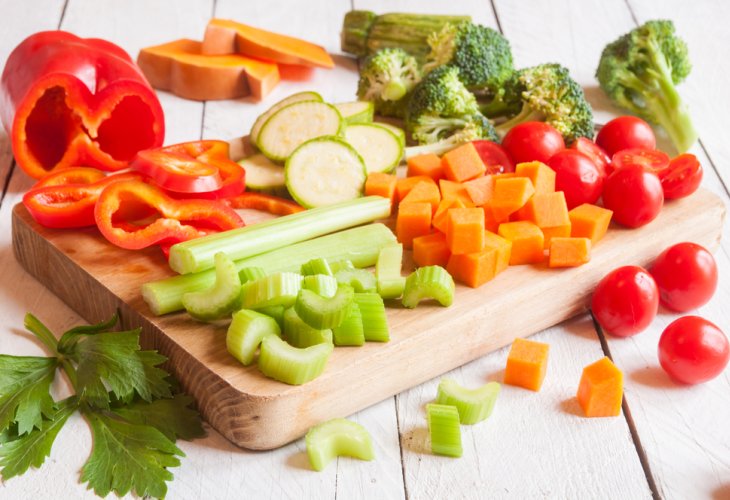Health and Nutrition
How to Keep Vegetables Nutritious: Top Tips for Healthier Cooking and Salads
Avoid common mistakes that destroy essential vitamins — learn when to chop, how to cook, and why homemade salads are better for your health
 (Photo: shutterstock)
(Photo: shutterstock)Fruits and vegetables are packed with vitamins and minerals, and eating a variety of colorful vegetables can significantly benefit your overall health. Some vegetables even contain antioxidants that help reduce the risk of illness, such as heart disease, high cholesterol, and others. However, there are a few important things to keep in mind.
“Many vitamins lose their nutritional value when exposed to air and light,” writes Marianna Orbach, Director of the Nutrition and Diet Unit at Clalit Health Services in Israel. “That’s why it’s best to prepare salads as close as possible to mealtime,” she explains. “Also, although many people prefer finely chopped salads, it’s actually better to cut the vegetables more coarsely, since fine chopping increases the vegetables’ exposure to oxygen and light, which can damage their nutritional value.”
She further explains: “To preserve a significant concentration of vitamins, it’s recommended to cook vegetables for as short a time as possible. Also, try to add the vegetables only after the water has reached a boil, to avoid losing their nutrients during cooking. For example, when cooking chicken soup, turn off the heat and only then add raw carrot or zucchini to the pot.”
“Preservatives, food colorings, stabilizers, and flavor enhancers are often added to improve food appearance and extend shelf life, but their effects on health are questionable, and potentially harmful when consumed regularly,” Orbach warns. “Children and the elderly are especially vulnerable to their harmful effects due to their limited ability to break down these substances. When making soups or vegetable dishes, it’s better to reduce the use of ready-made soups and soup powders, and instead opt for ground spices and fresh herbs.”
Finally, she suggests that homemade salads such as hummus spread or cabbage salad can be easily prepared at home, allowing you to better control the ingredients, especially the use of oil and salt.

